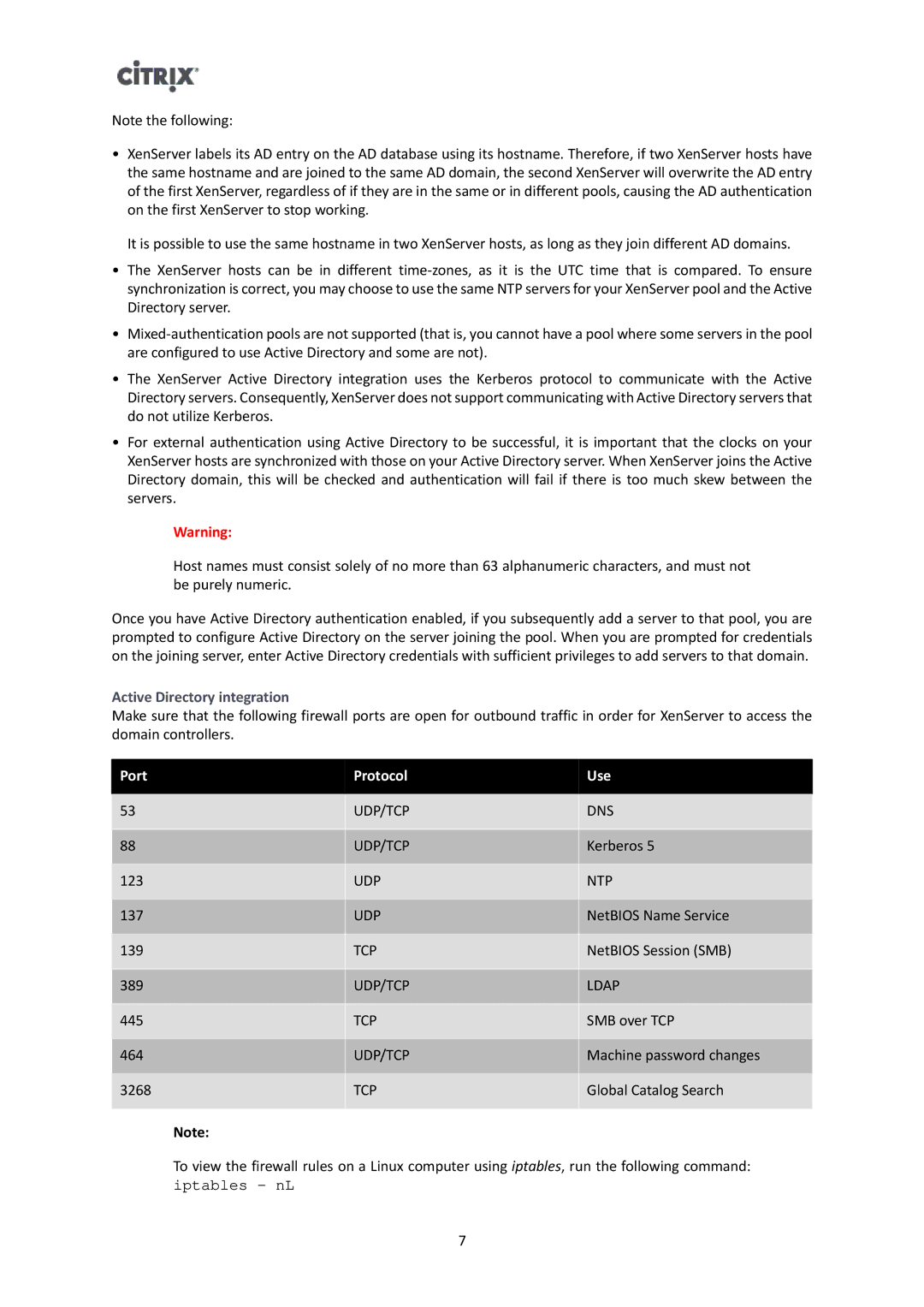Note the following:
•XenServer labels its AD entry on the AD database using its hostname. Therefore, if two XenServer hosts have the same hostname and are joined to the same AD domain, the second XenServer will overwrite the AD entry of the first XenServer, regardless of if they are in the same or in different pools, causing the AD authentication on the first XenServer to stop working.
It is possible to use the same hostname in two XenServer hosts, as long as they join different AD domains.
•The XenServer hosts can be in different
•
•The XenServer Active Directory integration uses the Kerberos protocol to communicate with the Active Directory servers. Consequently, XenServer does not support communicating with Active Directory servers that do not utilize Kerberos.
•For external authentication using Active Directory to be successful, it is important that the clocks on your XenServer hosts are synchronized with those on your Active Directory server. When XenServer joins the Active Directory domain, this will be checked and authentication will fail if there is too much skew between the servers.
Warning:
Host names must consist solely of no more than 63 alphanumeric characters, and must not be purely numeric.
Once you have Active Directory authentication enabled, if you subsequently add a server to that pool, you are prompted to configure Active Directory on the server joining the pool. When you are prompted for credentials on the joining server, enter Active Directory credentials with sufficient privileges to add servers to that domain.
Active Directory integration
Make sure that the following firewall ports are open for outbound traffic in order for XenServer to access the domain controllers.
Port | Protocol | Use |
|
|
|
53 | UDP/TCP | DNS |
|
|
|
88 | UDP/TCP | Kerberos 5 |
|
|
|
123 | UDP | NTP |
|
|
|
137 | UDP | NetBIOS Name Service |
|
|
|
139 | TCP | NetBIOS Session (SMB) |
|
|
|
389 | UDP/TCP | LDAP |
|
|
|
445 | TCP | SMB over TCP |
|
|
|
464 | UDP/TCP | Machine password changes |
|
|
|
3268 | TCP | Global Catalog Search |
|
|
|
Note:
To view the firewall rules on a Linux computer using iptables, run the following command: iptables - nL
7
